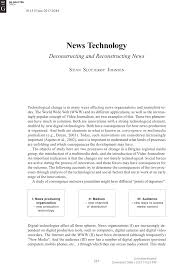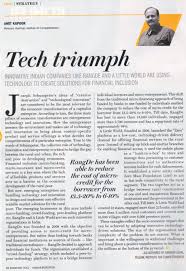The Power of Expert Panel Discussions
Expert panel discussions have become a cornerstone of knowledge sharing and collaboration in various fields, bringing together seasoned professionals, thought leaders, and innovators to delve into complex topics and provide valuable insights. These discussions offer a platform for experts to exchange ideas, challenge perspectives, and explore solutions to pressing issues.
Benefits of Expert Panel Discussions
Diverse Perspectives: Panel discussions bring together experts with diverse backgrounds, experiences, and viewpoints. This diversity fosters rich conversations and enables participants to gain new insights that they may not have considered otherwise.
In-Depth Analysis: Experts on a panel can delve deeply into a topic, offering nuanced analyses and exploring different facets of an issue. This in-depth exploration can lead to a comprehensive understanding of complex subjects.
Knowledge Sharing: Panel discussions provide a platform for experts to share their expertise, research findings, and best practices with a wider audience. This knowledge sharing contributes to the collective learning of participants.
Networking Opportunities: Attending or participating in expert panel discussions allows individuals to network with other professionals in their field. Building connections with like-minded individuals can lead to collaborations, partnerships, and future opportunities.
Tips for Hosting Successful Expert Panel Discussions
Select Diverse Panelists: Choose panelists with varied backgrounds, expertise, and perspectives to ensure a well-rounded discussion.
Define Clear Objectives: Clearly outline the goals and objectives of the panel discussion to guide the conversation and keep it focused.
Encourage Audience Engagement: Incorporate audience questions or interactive elements to make the discussion more engaging and inclusive.
Moderation is Key: A skilled moderator can facilitate the discussion effectively, manage time constraints, encourage participation from all panelists, and ensure a productive conversation.
In Conclusion
Expert panel discussions play a vital role in fostering collaboration, knowledge sharing, and innovation across various industries. By harnessing the collective expertise of seasoned professionals, these discussions have the power to drive meaningful change, spark new ideas, and inspire others in their respective fields.
Understanding Expert Panel Discussions: Key Questions and Insights
- How many experts are in a panel discussion?
- What is an expert panel discussion?
- What are the 3 parts of panel discussion?
- What does an expert panel do?
How many experts are in a panel discussion?
The number of experts in a panel discussion can vary depending on the event’s format, objectives, and the complexity of the topic being discussed. Typically, a panel consists of three to six experts who bring diverse perspectives and expertise to the conversation. Having a balanced number of panelists allows for in-depth discussions while also ensuring that each expert has ample opportunity to contribute meaningfully to the dialogue. Ultimately, the goal is to create a dynamic and engaging discussion that provides valuable insights and perspectives for the audience.
What is an expert panel discussion?
An expert panel discussion is a structured forum where a group of knowledgeable individuals, recognised for their expertise in a particular field, come together to share insights, exchange ideas, and address key topics or issues. These discussions offer a platform for experts to offer diverse perspectives, engage in in-depth analyses, and provide valuable knowledge to the audience. The collaborative nature of expert panel discussions allows for a comprehensive exploration of complex subjects and encourages meaningful dialogue among participants.
What are the 3 parts of panel discussion?
In a typical expert panel discussion, there are three key parts that structure the dialogue and engagement among panelists and the audience. The first part involves the introduction, where each panelist is introduced, highlighting their expertise and background. This sets the stage for the discussion and establishes credibility. The second part consists of the main discussion, where panelists share their insights, opinions, and responses to questions posed by the moderator or audience. This is the core of the panel discussion, where diverse perspectives are explored and debated. Lastly, the third part encompasses the conclusion, where key takeaways are summarised, final thoughts are shared, and any actionable insights or next steps are highlighted to provide closure to the discussion.
What does an expert panel do?
An expert panel serves as a platform where seasoned professionals and thought leaders convene to discuss and analyse complex topics within their respective fields. The primary role of an expert panel is to provide diverse perspectives, in-depth insights, and valuable expertise on a particular subject. Through collaborative discussions, expert panels aim to share knowledge, challenge assumptions, explore innovative solutions, and inspire critical thinking among participants. Ultimately, an expert panel plays a crucial role in facilitating dialogue, fostering learning opportunities, and driving meaningful conversations that contribute to the advancement of knowledge and best practices within the industry.




